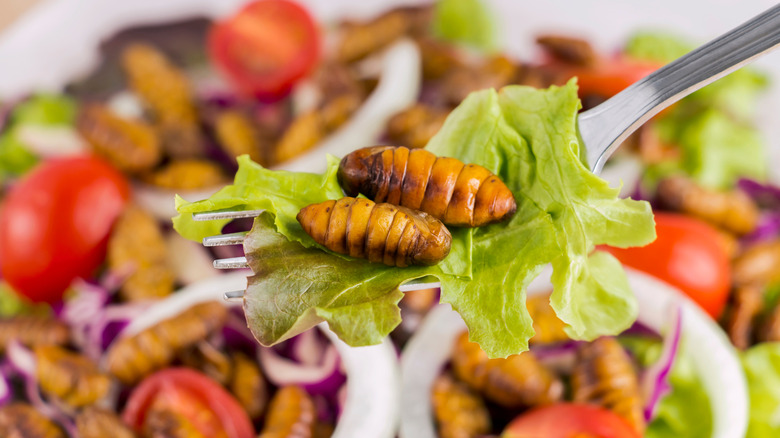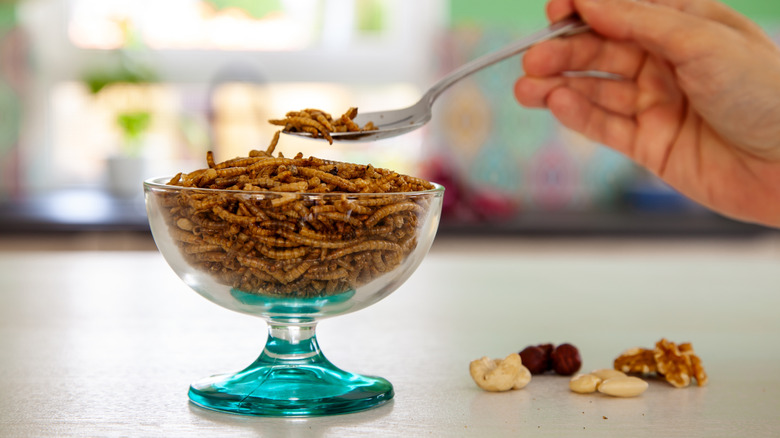The Crunchy Protein-Packed Bugs That Make A Perfect Salad Topper
If you watched "The Lion King" as a kid and recall the scene in which Timon and Pumbaa lift a log to gobble up plump grubs, you might have thought that eating insects isn't so bad. Well, you aren't alone, but you don't need to go looking under any logs to make it happen (though you could). Most of us intend to keep bugs out of our kitchens, but what if we did that by just sprinkling them on a salad? Turns out that mealworms are ideal for that. Mealworms are baby — or larvae — darkling beetles, and if you're short on those, they aren't hard to find. Thanks to the growing trend of entomophagy (eating insects), you can often order them online.
Mealworms aren't regular worms — they're loaded with protein, fat, fiber, and vitamins and minerals like B12 and zinc. The grubs can be prepared either in the oven at 200 degrees Fahrenheit for one hour, or pan-fried with your choice of cooking oil. Season your mealworms with whatever you wish. Some of them come pre-seasoned with fun flavors like BBQ or even pizza, but plain mealworms will typically have a mild nutty taste that makes them a great canvas for whatever profile you want to add to them. Ideally, sprinkling these morsels on your salad is best when they are crispy and crunchy, which is great considering dead and dried mealworms offer more protein than live and moisture-packed ones.
Is eating insects the future of protein?
Now that you know how to make a better salad, you can also embrace the fact that bugs are the protein source of the future — or so many people seem to believe. The ever-growing case for eating insects often revolves around the level of impact that breeding them has on the global environment. Insects generate very little ammonia and greenhouse gas emissions. The land and water resources required to raise mealworms or other insects are also lower than those of cattle and other livestock.
Livestock make up around 14.5% of global greenhouse gas emissions, which may not always be sustainable in the wake of the climate crisis. Insects, however, can be produced in large quantities as a protein substitute or replacement, and adding them to a daily diet could possibly help to lower the extreme demand for cattle, pigs, or other livestock. After enjoying mealworms on a salad, try adding them to your next rice bowl or even just seasoning them and munching on them by themselves. You might even find a new favorite snack.

